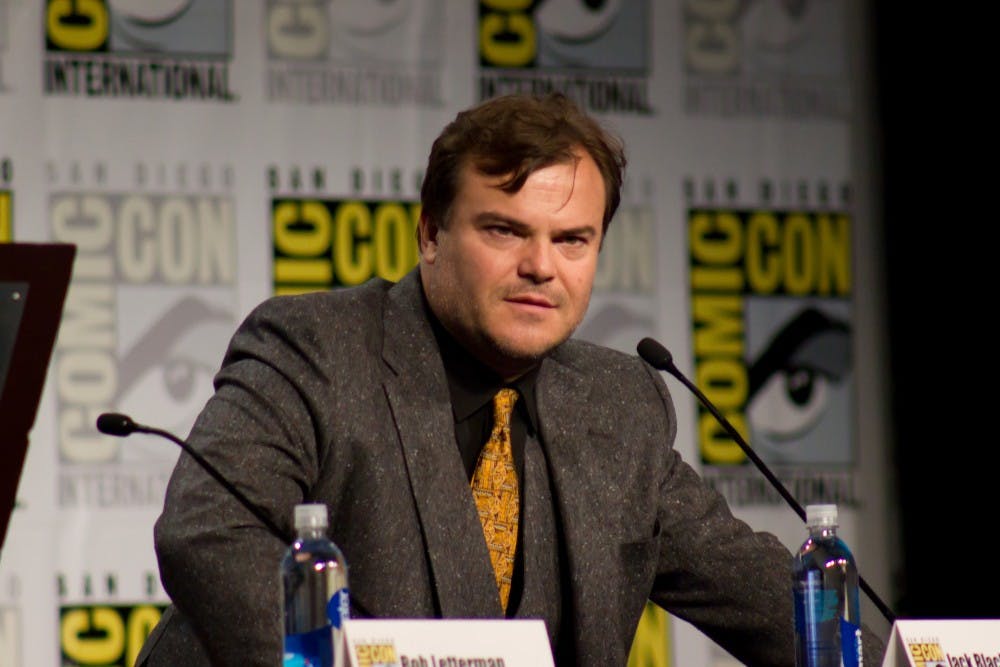School of Rock is not a movie about sitting down. If you haven’t seen it, it’s a comedy about a man who teaches a group of elementary school students how to play rock and roll music while pretending to be their substitute teacher.
Jack Black played the protagonist, which should tell you everything that you need to know about the film. It is such an energetic film that two years ago, someone looked at it, wondered why they couldn’t make it even more high energy and made it into a Tony Award-nominated musical.
So naturally when I heard that there was going to be a live reading of the film, hosted by the Hopkins Film Society at 2640 Space, I was a little confused. It didn’t seem like the kind of story that should be told by a group of actors sitting at a desk and reading from the script.
However, Gillian Waldo, one of the co-directors of the Film Society executive board, did not have the same fears.
“We find that picking a dialogue-heavy, comedic film works best,” Waldo said in an email to The News-Letter. “An ideal film also needs to have an ensemble cast so that we can cast more people. School of Rock is packed with gags and jokes and features a bunch of dynamic characters.”
Wouldn’t you know it, she was right. The live reading was incredibly entertaining, and the cast, comprised of local Baltimore performers chosen by the Film Society, did an excellent job of conveying the script’s comedy and energy, despite being largely confined to their chairs.
A good portion of the praise goes to Ed Schrader — of the famed Baltimore band Ed Schrader’s Music Beat — who played Dewey Finn, the film’s protagonist.
Any character played by Jack Black is going to be loud and boisterous, and Schrader was more than willing to match that expectation.
He bellowed, he shouted, he even sang every once in awhile, occasionally accompanied by actress Joy Postell. As the main character, he set the tone for the rest of the cast, and he did so admirably.
The other actors also made sure that the audience was consistently laughing, usually by making sure to go the extra mile. Kevin Sherry, for instance, would perform little costume changes every time he swapped characters, mussing up his hair or sliding on a button-up shirt as the plot demanded.
After the characters started forming their band, the actors would play clips of rock music to go along with the story. Shortly thereafter, multitalented artist LOVE the Poet pulled out a guitar and pretended to strum along to the tune.
Meanwhile, immediately to her right, Nicky Smith pretended to play the drums using only a plastic fork and knife.
The rest of the cast — Delvin Rice, Joy Postell, Jenne Matthews, Tommy Waldo and Julia Gunnison — were equally committed to ensuring that the audience was consistently entertained.
Even the reading’s weakest moment was salvaged thanks to the actors’ strengths. The climactic scene of the movie is the “Battle of the Bands,” where the School of Rock band performs for the first time, the culmination of all of their efforts.
Unfortunately that doesn’t really translate well to the live reading format, as the scene was reduced to a few lines read by the narrator. Still, Schrader made up for the lull by launching into a rock song, ensuring that the reading’s ending hit all of the notes that the original had.
In the end, all of my fears about the School of Rock readingwere swept aside. The cast’s commitment to their roles, as well as the movie’s well-written script, ensured that the audience would enjoy the production.
When asked about the decision to host the live reading, Waldo wrote in an e-mail to The News-Letter, “It’s kind of become a tradition, and we think it’s a good example of more experimental programming that still promotes film culture in Baltimore.”
Hopefully the live reading’s success will ensure the continuation of the tradition and bring even more interesting theater and film projects to campus.





